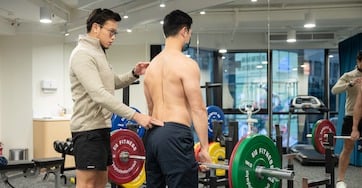Continence issues often remain unspoken topics, yet they significantly impact the lives of many women. This blog aims to break the silence by providing an informative, approachable, and evidence-based overview of female continence problems and women's health physiotherapy's role in addressing them.
What is Continence?
Continence controls bladder and bowel functions, crucial for daily comfort and independence. The pelvic floor muscles and effective nerve signalling largely maintain this control. When these systems work well, we enjoy a sense of confidence and freedom in our activities.
However, challenges like leaks during physical activities or sudden urges to urinate are not just inconveniences; they signal the need to focus on our pelvic health. These issues underscore the importance of understanding continence and seeking appropriate support, such as from women's health physiotherapy. Addressing continence proactively can significantly enhance one’s quality of life, highlighting the role of knowledge and healthcare in managing and improving pelvic floor health.
Understanding Female Incontinence
Incontinence issues describe any accidental or involuntary loss of urine, faecal matter or flatus (wind) and can affect women of all ages. There are two main types of urinary incontinence: stress incontinence (leakage during physical movement or activity) and urge incontinence (involuntary leakage accompanied by a strong urge to urinate). Studies have shown that 45.1% of women aged 55-106 years old suffer some degree of urinary incontinence in Asia. (1)
Urinary incontinence can significantly impact various aspects of a person's life, leading to a decreased quality of life, increased social isolation, and diminished mental health.
Those who experience incontinence can use incontinence pads. These pads are absorbent pads which come in many different forms. The most popular ones are pads attached to underwear. There are also incontinence pads that can replace underwear.
The Effects of Female Incontinence
Decreased Quality of Life:
- Physical discomfort: The constant worry about leakage, the need to wear absorbent pads, and frequent trips to the bathroom can cause physical discomfort and irritation.
- Sleep disruption: Incontinence may lead to interrupted sleep due to the need to use the bathroom multiple times during the night, resulting in fatigue and reduced daily functioning.
- Activity limitations: Women with urinary incontinence may feel restricted in participating in physical activities, sports, or exercise due to the fear of leakage, which can negatively impact their overall health and well-being.
Increased Social Isolation:
- Embarrassment and stigma: The stigma surrounding incontinence may cause feelings of embarrassment, leading women to avoid social situations, gatherings, or public places where they may be unable to access a restroom quickly.
- Relationship strain: Incontinence can also impact intimate relationships and create tension between partners due to the fear of leakage during sexual activity or concerns about odour and hygiene.
- Workplace difficulties: Incontinence can make focusing at work or attending meetings challenging, resulting in decreased productivity and increased stress. Women may also hesitate to disclose their condition to colleagues or supervisors due to the stigma, further isolating them in the workplace.
Diminished Mental Health:
- Anxiety and stress: The constant worry about potential leakage and the need to plan around restroom access can contribute to chronic stress and anxiety.
- Depression: Feelings of shame, embarrassment, and social isolation, combined with a decreased quality of life, can lead to depression in individuals with urinary incontinence.
- Low self-esteem: The inability to control one's bladder can be disempowering and negatively affect a person's self-confidence and self-image.
Understanding these consequences of urinary incontinence highlights the importance of seeking appropriate care and support from healthcare professionals, such as women's health physiotherapists, to address and manage this condition effectively, ultimately improving the overall quality of life and mental well-being.
Women's Health Physiotherapy for Continence Issues
Proactive women's physiotherapy can help prevent continence issues by maintaining pelvic floor health. Tips include practicing regular pelvic floor exercises and making lifestyle changes such as reducing stress, sleep hygiene, having a balanced diet and regular exercise.
Women's health physiotherapists collaborate with various healthcare professionals, including obstetricians, gynaecologists, oncologists, midwives, pain medicine specialists, sexual health experts, and mental health practitioners, to provide comprehensive care and support for women. This multidisciplinary approach helps ensure that women receive the best care tailored to their needs.
Specific services provided by women's health physiotherapists for incontinence and pelvic health also include:
- Pelvic Floor Muscle Dysfunction and Pain: Treatment for women experiencing pelvic floor muscle weakness, pain, or dysfunction (including sexual, often incorporating exercises, manual therapy, biofeedback and self-management techniques.
- Post-operative Pelvic Rehabilitation: Support for patients recovering from surgeries such as prostatectomies, hysterectomies, and pelvic radiation treatments, focusing on regaining strength, function, and comfort.
- Bladder and Bowel Issues: Assessment and treatment of conditions like bladder or bowel incontinence, urgency, frequency, overactive bladder, and constipation, utilising tailored exercise programs, lifestyle modifications, and other interventions.
By collaborating with a team of healthcare professionals and offering specialised services, women's health physiotherapists help women effectively manage and prevent continence issues, contributing to their overall health and well-being.
Incontinence Pads and Products
While you're in the process of getting a diagnosis or awaiting the effectiveness of a treatment, incontinence pads, alongside various other supportive products and devices, can simplify your life and offer added convenience.
They include:
- Protective gear for beds and chairs
- Specially designed clothing and swimwear for extra security
- Catheters and penile sheaths
- Skincare and hygiene products to maintain comfort and cleanliness
- Incontinence pads and protective underwear for discreet support

Don't let continence issues remain a silent struggle. Seek help and support from women's health physiotherapy experts, who can guide you toward preventing and managing continence issues and your overall health and well-being.

 Central General Practice
Central General Practice
 Repulse Bay
Repulse Bay
 Clearwater Bay
Clearwater Bay
 BodyWorX Clinic
BodyWorX Clinic
 Central Specialist Clinic
Central Specialist Clinic
 MindWorX Clinic
MindWorX Clinic
 Partner Clinics
Partner Clinics
 Family Clinic
Family Clinic
 OT&P Annerley Midwives Clinic
OT&P Annerley Midwives Clinic


